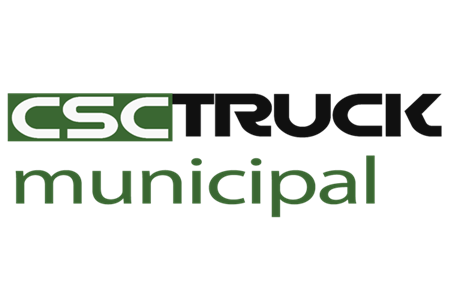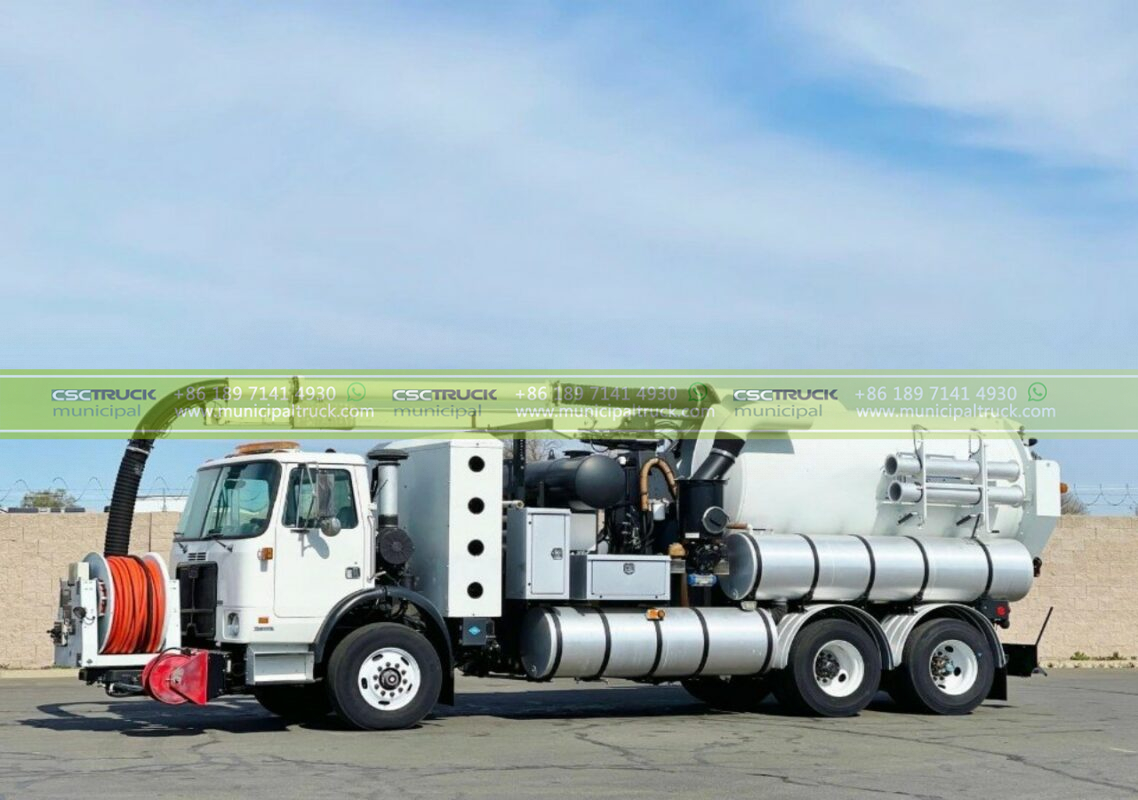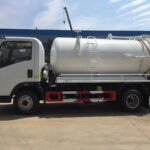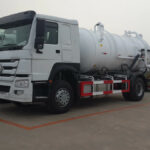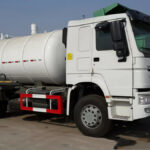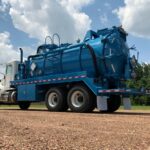Sewage treatment is an essential process that ensures the proper disposal and treatment of wastewater to protect public health and the environment. It involves a series of complex scientific processes aimed at removing harmful pollutants and contaminants from sewage before it is safely discharged or reused. While sewage treatment plants are the central hub for these operations, the role of sewer trucks in the overall process cannot be underestimated. In this article, we will explore the science behind sewage treatment and delve into the crucial role that sewer trucks play in this intricate system.
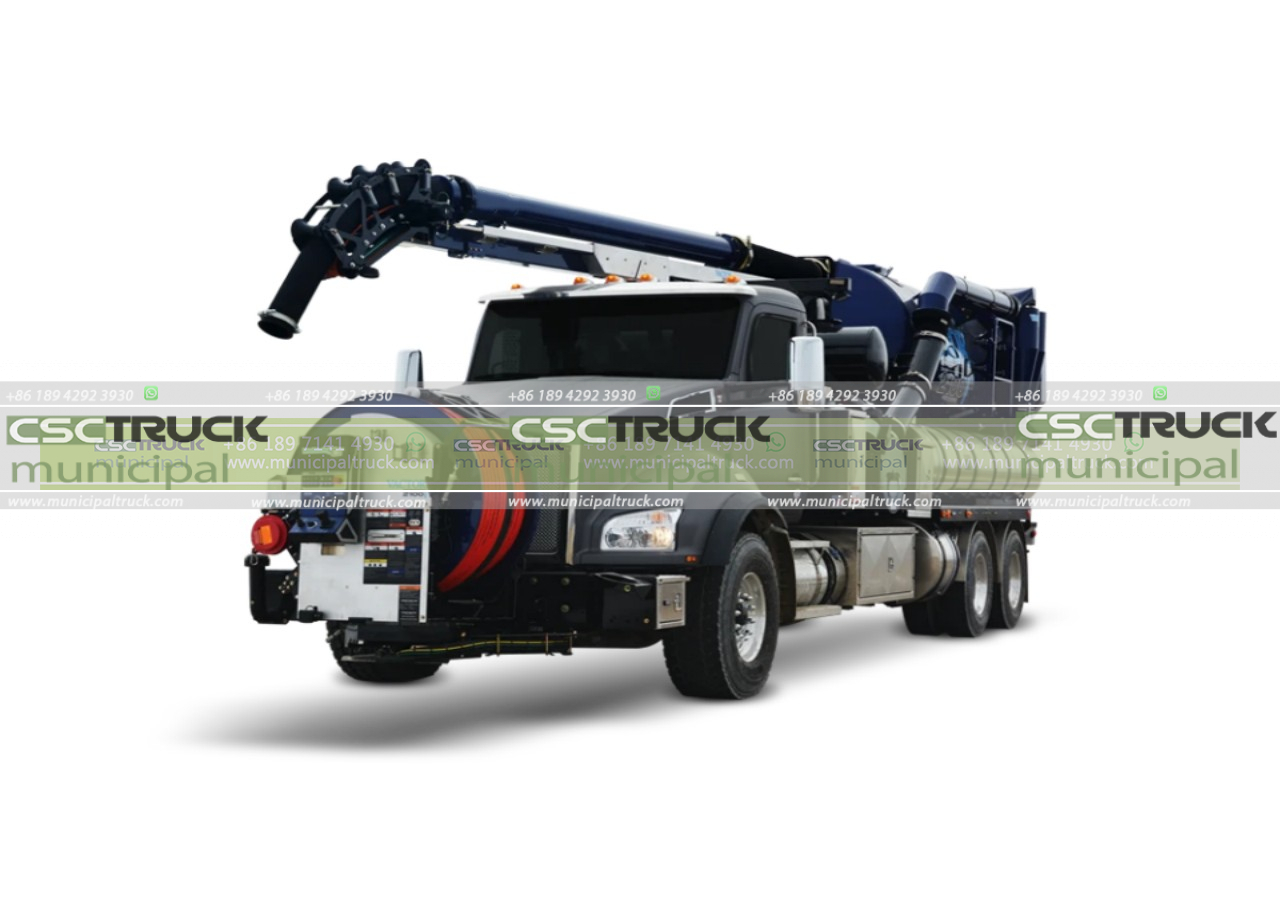 Sewage treatment is a vital aspect of modern society, as it helps prevent the spread of diseases and protects water sources. When wastewater is generated from our homes, businesses, and industries, it contains a variety of contaminants, including human waste, chemicals, and organic matter. If left untreated, these pollutants can have severe consequences on human health and the environment.
Sewage treatment is a vital aspect of modern society, as it helps prevent the spread of diseases and protects water sources. When wastewater is generated from our homes, businesses, and industries, it contains a variety of contaminants, including human waste, chemicals, and organic matter. If left untreated, these pollutants can have severe consequences on human health and the environment.
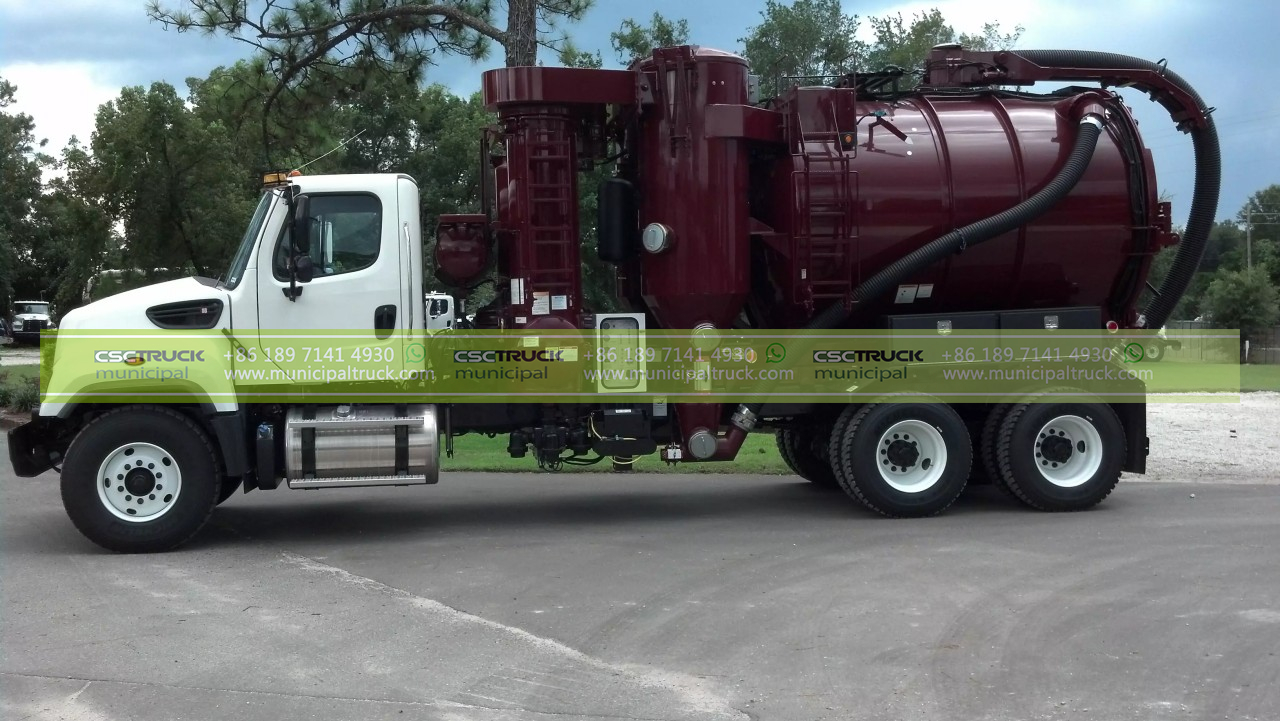 The sewage treatment process involves several stages, each designed to target specific contaminants and ensure the water is safe for release or reuse. The primary steps in sewage treatment include preliminary treatment, primary treatment, secondary treatment, and tertiary treatment.
The sewage treatment process involves several stages, each designed to target specific contaminants and ensure the water is safe for release or reuse. The primary steps in sewage treatment include preliminary treatment, primary treatment, secondary treatment, and tertiary treatment.
- During the preliminary treatment stage, debris and large solids are removed from the wastewater. This is achieved through mechanical processes such as screening and grit removal. Sewer trucks equipped with screens and pumps are often used to transport and remove the collected solid waste materials from the treatment facility. These sewer trucks play a crucial role in maintaining the efficiency of the sewage treatment plant by keeping the preliminary treatment processes running smoothly.
- The next stage is the primary treatment, where physical and chemical processes are employed to remove suspended solids and sediments from the wastewater. In this step, large settlement tanks are used to allow solid particles to settle at the bottom while scum floats to the surface. Sewer trucks equipped with suction devices are utilized to remove the settled sludge and scum, ensuring the tanks can continue to function effectively.
- Once the wastewater goes through primary treatment, it enters the secondary treatment phase, which focuses on biological processes to further purify the water. Microorganisms, such as bacteria and fungi, are employed to break down organic matter and remove dissolved pollutants. This is typically achieved through the use of aeration tanks, where the wastewater is mixed with air to provide oxygen for the microorganisms. Sewer trucks play a vital role in this stage by transporting and supplying the necessary biological agents, such as bacteria cultures and enzymes, to maintain the optimal conditions for microbial activity.
- After the secondary treatment, the wastewater enters the tertiary treatment stage, also known as the advanced treatment phase. This step aims to remove any remaining contaminants and produce water that meets stringent quality standards. Various methods, such as filtration, disinfection, and chemical treatments, are employed to achieve this level of purification. Sewer trucks equipped with advanced filtration systems and chemical dosing units are responsible for delivering and implementing these treatment techniques effectively.
Moreover, sewer trucks are also instrumental in the transportation and disposal of treated sewage or sludge. Once the wastewater has undergone the necessary treatment processes, it is crucial to manage the resulting byproducts appropriately. This includes the transportation of treated water to be released into water bodies or reused for non-potable purposes, such as irrigation or industrial processes. Additionally, the sludge or biosolids generated during the treatment process needs to be carefully transported and disposed of by environmental regulations. Specialized trucks with tanker systems are utilized for the safe and efficient transportation of these materials, ensuring they reach their designated destinations without causing any harm.
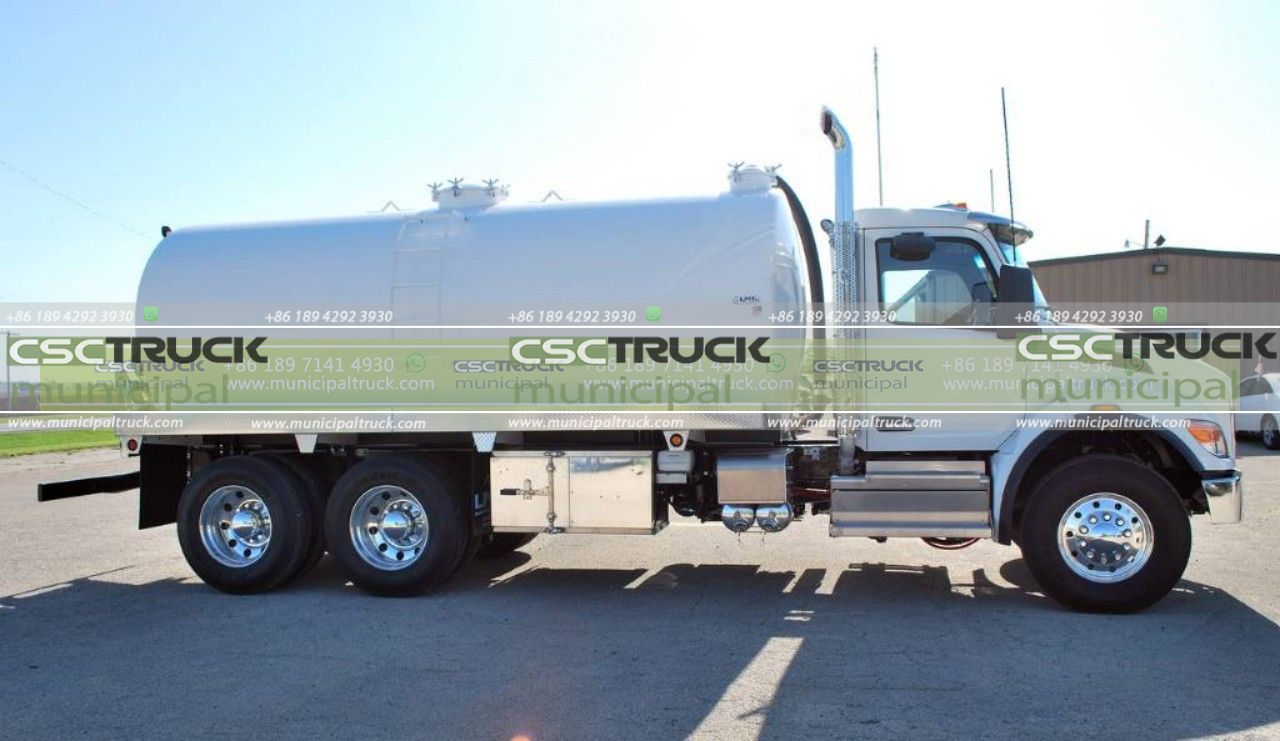 In recent years, advancements in technology have enabled the development of innovative trucks designed specifically for sewage treatment purposes. These sewer trucks are equipped with advanced monitoring systems, efficient pumping mechanisms, and environmentally friendly features to enhance the overall efficiency and sustainability of the sewage treatment process. For example, some sewer trucks now incorporate state-of-the-art sensors and telemetry systems to monitor the quality of the wastewater in real-time, allowing operators to make adjustments and optimize the treatment process accordingly.
In recent years, advancements in technology have enabled the development of innovative trucks designed specifically for sewage treatment purposes. These sewer trucks are equipped with advanced monitoring systems, efficient pumping mechanisms, and environmentally friendly features to enhance the overall efficiency and sustainability of the sewage treatment process. For example, some sewer trucks now incorporate state-of-the-art sensors and telemetry systems to monitor the quality of the wastewater in real-time, allowing operators to make adjustments and optimize the treatment process accordingly.
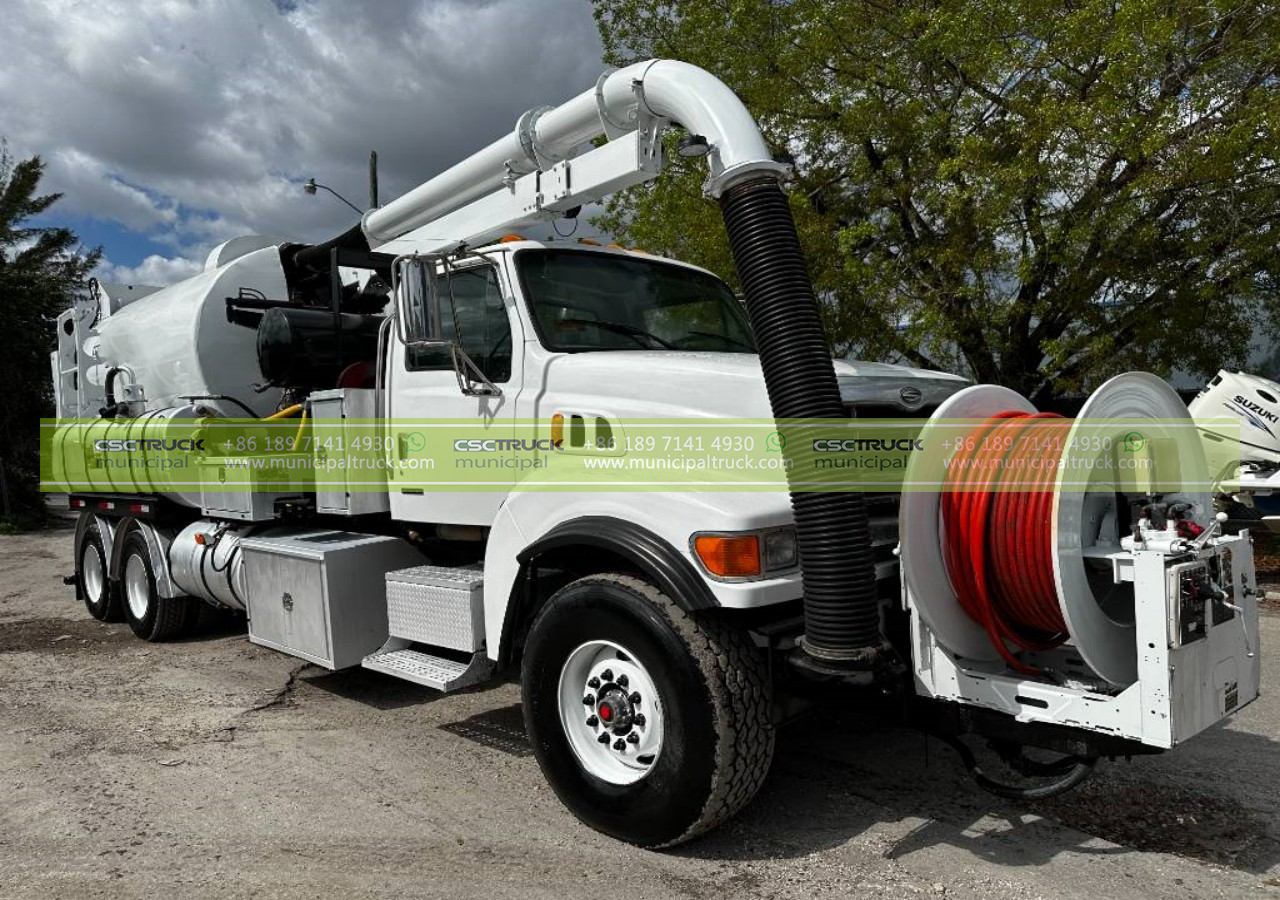 Furthermore, the integration of eco-friendly components in sewage treatment trucks has become increasingly prevalent. Many sewer trucks now utilize cleaner and more fuel-efficient engines, reducing emissions and minimizing the environmental impact during transportation. Additionally, the use of renewable energy sources, such as solar or electric-powered sewer trucks, is gaining traction, further promoting sustainability in the sewage treatment industry.
Furthermore, the integration of eco-friendly components in sewage treatment trucks has become increasingly prevalent. Many sewer trucks now utilize cleaner and more fuel-efficient engines, reducing emissions and minimizing the environmental impact during transportation. Additionally, the use of renewable energy sources, such as solar or electric-powered sewer trucks, is gaining traction, further promoting sustainability in the sewage treatment industry.
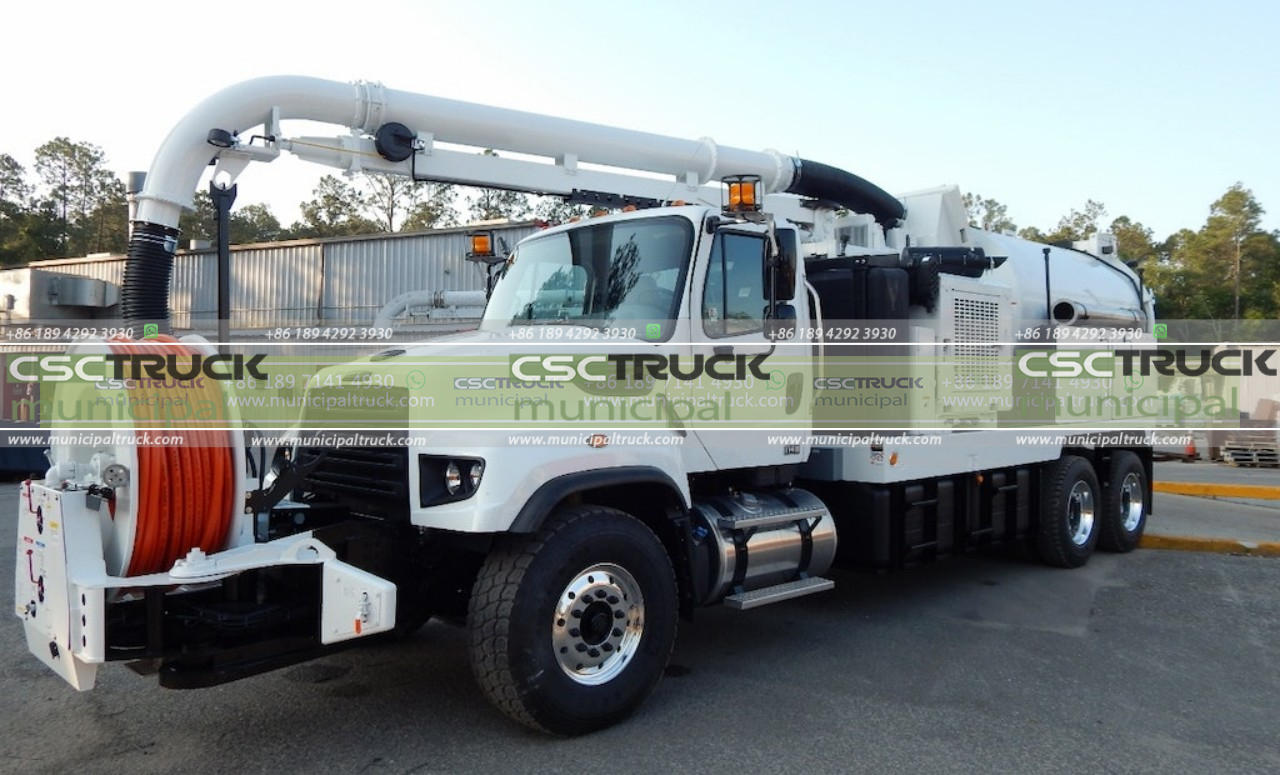 Apart from their role in the actual treatment process, sewer trucks also contribute to the maintenance and upkeep of sewage treatment plants. They are responsible for delivering essential supplies, such as chemicals, filter media, and replacement parts, ensuring uninterrupted operation of the treatment facilities. Regular maintenance activities, such as cleaning and repairs, are also facilitated by trucks equipped with specialized equipment and tools.
Apart from their role in the actual treatment process, sewer trucks also contribute to the maintenance and upkeep of sewage treatment plants. They are responsible for delivering essential supplies, such as chemicals, filter media, and replacement parts, ensuring uninterrupted operation of the treatment facilities. Regular maintenance activities, such as cleaning and repairs, are also facilitated by trucks equipped with specialized equipment and tools.
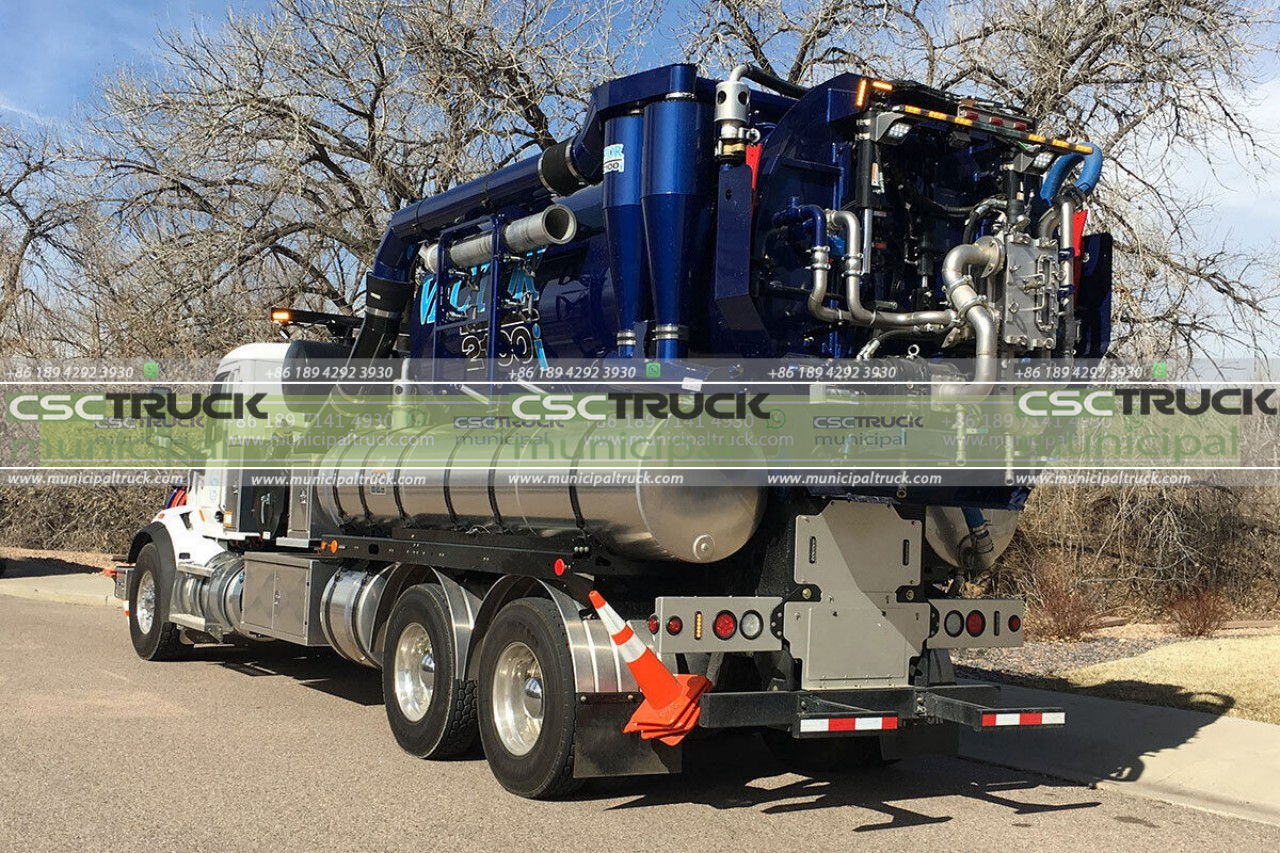 It is worth mentioning that the role of trucks in sewage treatment extends beyond traditional treatment plants. In certain cases, especially in remote areas or during emergencies, mobile treatment units mounted on sewer trucks can be deployed to provide temporary sewage treatment solutions. These mobile units are equipped with all the necessary treatment processes and can be rapidly transported to the required location, addressing immediate needs and preventing the contamination of water sources.
It is worth mentioning that the role of trucks in sewage treatment extends beyond traditional treatment plants. In certain cases, especially in remote areas or during emergencies, mobile treatment units mounted on sewer trucks can be deployed to provide temporary sewage treatment solutions. These mobile units are equipped with all the necessary treatment processes and can be rapidly transported to the required location, addressing immediate needs and preventing the contamination of water sources.
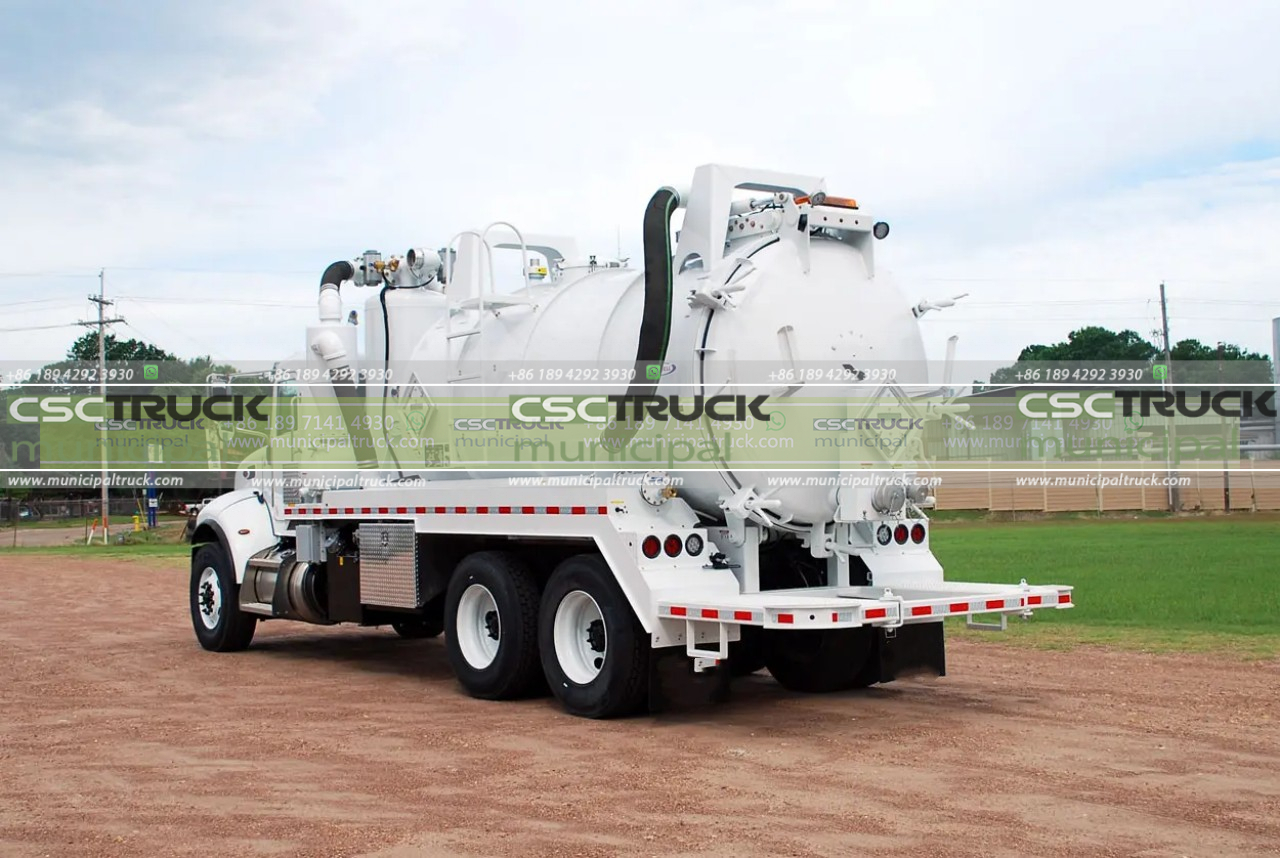 In conclusion, sewage treatment is a complex scientific process that plays a critical role in maintaining public health and safeguarding the environment. While sewage treatment plants serve as the core infrastructure, trucks play a pivotal role throughout the entire process. From preliminary treatment to the transport and disposal of treated wastewater and sludge, sewer trucks ensure the smooth functioning of the sewage treatment system. They facilitate the removal of solid waste, transport, and supply necessary biological agents, implement advanced treatment techniques, and contribute to the maintenance and operation of treatment facilities. With advancements in technology, trucks are becoming more efficient, eco-friendly, and equipped with innovative features, further enhancing the science behind sewage treatment. As the importance of sustainable practices continues to grow, the role of sewer trucks in sewage treatment will remain indispensable in ensuring the effective and responsible management of wastewater.
In conclusion, sewage treatment is a complex scientific process that plays a critical role in maintaining public health and safeguarding the environment. While sewage treatment plants serve as the core infrastructure, trucks play a pivotal role throughout the entire process. From preliminary treatment to the transport and disposal of treated wastewater and sludge, sewer trucks ensure the smooth functioning of the sewage treatment system. They facilitate the removal of solid waste, transport, and supply necessary biological agents, implement advanced treatment techniques, and contribute to the maintenance and operation of treatment facilities. With advancements in technology, trucks are becoming more efficient, eco-friendly, and equipped with innovative features, further enhancing the science behind sewage treatment. As the importance of sustainable practices continues to grow, the role of sewer trucks in sewage treatment will remain indispensable in ensuring the effective and responsible management of wastewater.
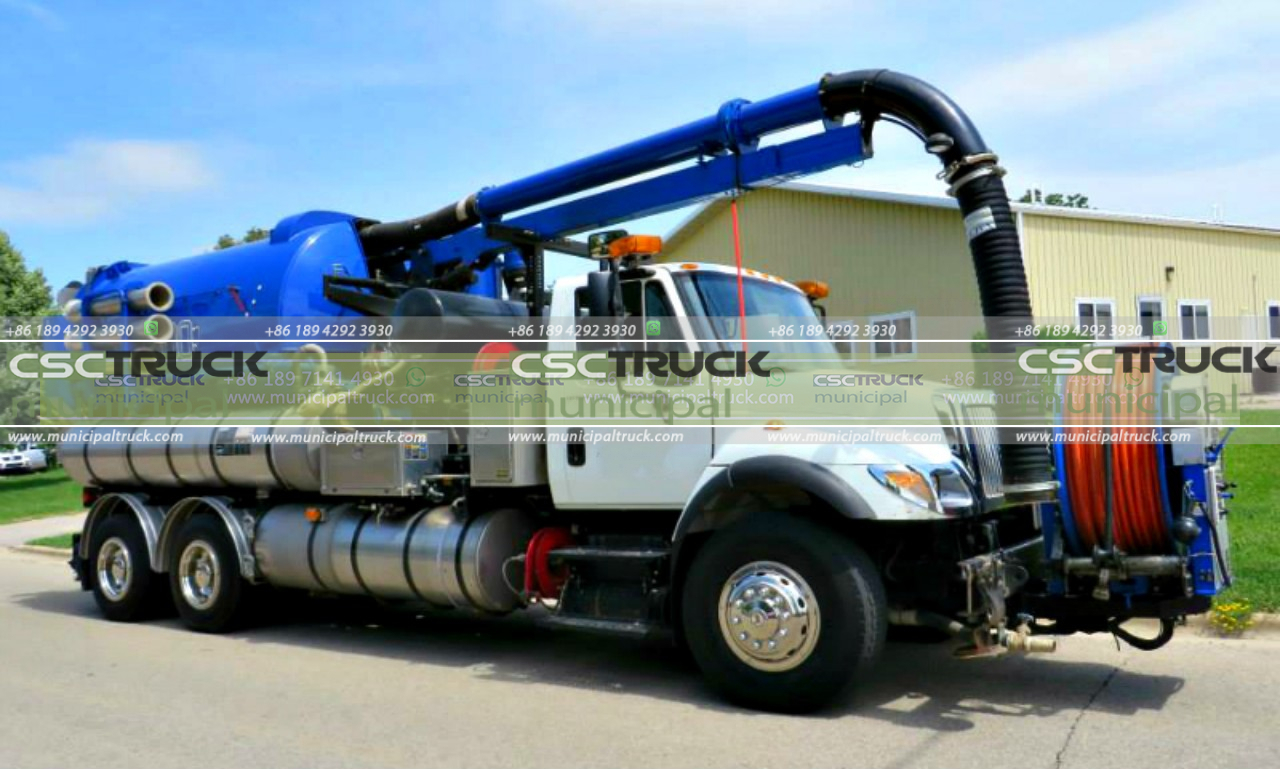 Contact us for this municipal truck or similar trucks: [email protected]
Contact us for this municipal truck or similar trucks: [email protected]
Call us or What’s APP us: +86 189 4292 3930
